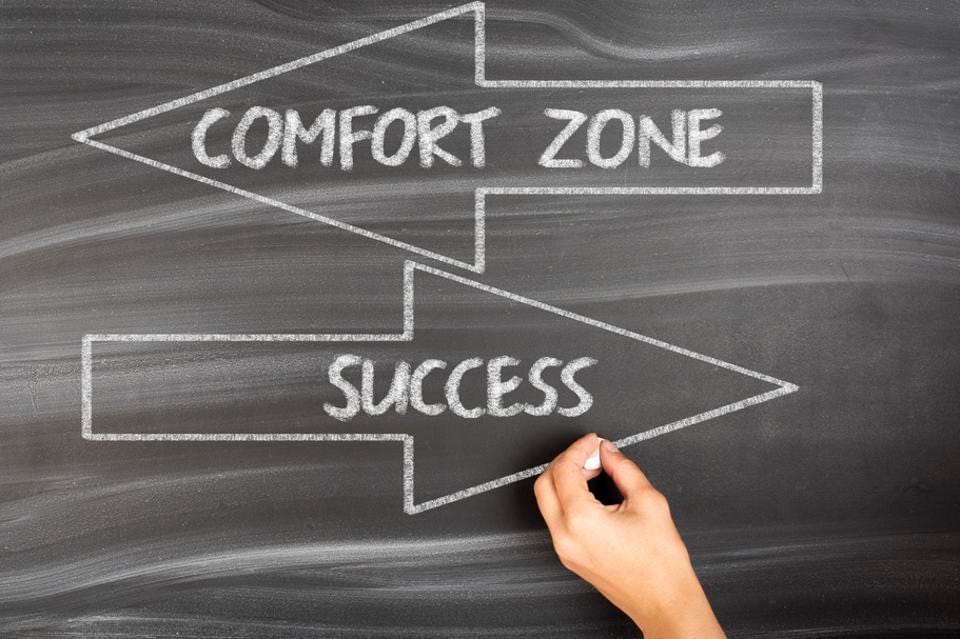(2nd ranked Essay in the GZA Global Essay Competition)
“Men are driven by two principal impulses, either by love or by fear.”
― Niccolò Machiavelli, The Discourses
This quote may be five centuries old, but stands perfectly apropos today more than ever.
Will I win the race? Can I ace that interview? How can I improve my work performance? These ponderings keep most of us up at night. However, that one sleepless night, will be a good trade-off for years of comfortable slumber, in the knowledge that we overcame that fear successfully.
That is why I believe that fear is the best driver of optimum performance for us. Whether in school, at work, playing sports, or life in general- the uncertainty, coupled with the adrenaline rush, keep us on our toes always. I believe that we all essentially have the fear of failure and the consequences attached to it. You will never feel the magnitude of the situation in an environment of comfort, coziness and glee. Hence, fear keep us attentive to details in minutiae, potential mistakes to avoid, and remedial measures to take as necessary. Is that not a great way to improve our chances of success?
Thus, achieving success or accepting failure are two sides of the same coin, and are hinged upon how fear makes us work towards one over the other. Yet, anything in surplus is harmful as well. Similarly, fear should not be as excessive as to paralyze any form of action at all. When one toes that delicate balance, we fill discover that healthy nervousness trumps pompous flair any day.
As far as emotions go, fear does not necessarily have to be a negative sentiment. Just as fear of being preyed upon by the lion makes the deer run for its life (literally), a healthy amount of fear is essential to keep away from dangers and avoid potential barriers to our well-being. This trepidation has two dimensions: one, it helps us to take chances and two, it keeps us from taking unnecessary risks.
This may seem contradictory, and hence needs some explanation. Anxiety before making life-changing decisions is valid, and only serves to question ourselves whether we are on the right trajectory. If in our honest estimation it sounds unreasonable, we can definitely hold or drop that decision. But, if it does hold water, then nothing else will stop us from taking that leap of faith, not even ourselves.
My own experience of being a teaching volunteer in Chile serves as an apt example here. Living in a land on the opposite end of the world, unlike India in any way (i.e. culture, language, food), and not knowing anyone around should have put the fear of life in me, and it initially did. Yet, I grabbed that opportunity with both hands and did not regret it since. All the consternations I had prior had withered away once I shed my unease and started looking at the situation as a learning curve. It became a challenging game that I had to win. Therefore, many a time fear could create a pathway to new opportunities, I we choose to take it.
It is lunch-time and I am craving for some pizza. But, I cannot speak Spanish, have not yet understood the currency values, and do not know any good restaurants around, and I am vegetarian to boot in a country famed for its fresh seafood and meats! But, I am hungry. Let the games begin! I took out my phone and looked for vegetarian restaurants nearby, used Google Translate to order a cheese and tomato pizza at the pizzeria, and requested the cashier (with my broken Spanish) to help sort out the pesos I had to pay the bill. Mission accomplished! I staved off my hunger and learnt something new that day. Every day since then was just like crossing another difficulty level in this maze of obstacles that I faced. Yes, I was fearful during those dreaded initial days, but it was that terror that I utilized to arm myself with new skills, rather than letting it overpower me to the point of helplessness. Fear helped me move ahead, face new challenges, try a new project and enjoy something that stirred my passion- teaching.
In general, an inkling of unease assists us in going back to the drawing board and gather as much knowledge as possible about what we are going to face. This automatically leads to the fears withering away and being replaced by a sense of calm and self-confidence. And what do we fear? It is the fear of the unknown, more often than not. Hence, fear leads to better preparation, in turn familiarizing ourselves with something hitherto mysterious, which finally helps us transcend the fear that lead us here in the first place.
Fear is also linked to a sense of responsibility that one has towards people around them, be it family, friends or well-wishers. The fear of not letting them down is in itself a novel instigator for us to push ourselves to the limit, be the best version of ourselves, and gaining their well-earned respect ultimately.
Let us look at the other end of the spectrum. Why does one not take chances in life from a place of comfort and happiness? I would say, that the essential human quality of bettering oneself daily is missing from such people. If I already have all the comforts in life that many aspire (and often fail), to achieve in life, then why should I risk it? Therefore, one always needs to be a rolling stone that moves forward no matter what, rather than being a moss-gathering rock of no utility. Being fearful is the only quality which provides the incentive to achieve one’s dreams and goals despite the presumed and potential pitfalls.
The anxiety and distress we go through is a good indicator of where our strengths lie as well. Although we may not admit it, in our hearts we know our weaknesses in life. So, pursuing objectives that we full well know we are inept at is not the wisest undertaking. Instead, this fear will push us to pursue our strengths and think about making that a worthwhile endeavor. Hence, fear is the perfect gauge to recognize our forte, and being mindful of our decisions, lest it be viewed as being recklessly impulsive. Perhaps, a SWOT analysis of oneself could help us recognize that when fear tries to overpower us, whether we should face or flee, run or stand our ground, from an apparently adverse circumstance.
Personally, I would rather think less about the best case scenario, and instead prepare well for the worst case possibilities. Even though it appears pessimistic, this helps me stay guarded against potential pitfalls that others may not have considered. If in the end, there is success, then this does not come as a surprise as well, given the many hours spent burning the midnight oil, so to speak.
I would always choose fear over contentment and/or overconfidence because fear keeps my feet on the ground and yet inspires me to fly high. Thus, fear helps in making reasonable rational decisions in life. If I cannot afford to buy business class tickets while traveling today, that drives me even more to work as hard as humanly possible to enjoy those exclusive benefits someday. Hence, the fearful reasoning that keeps me humble enough to know that I cannot splurge presently, simultaneously acts as guide to reach that level of affluence sooner rather than later.
Conversely, the fear of not reaching a goal acts as a reminder to push forward, come rain or shine. That extra drive is what makes all the difference. The mentality being: If they all toil for 8 hours a day, I will put in 16.
It is no surprise then, that the most successful people we come across in all walks of life are the one that gave it their all. Despite their lives being peppered with phases of self-doubt and fear that crept in time and again, it is their sheer determination and will of force that helped overcome that distress. Is that not a more inspirational story to get encouraged by, than to read about someone born with a silver spoon that never had to lift a finger to prosper in life?
A life of difficulties is a life well-lived, since the whole point of the human endeavor is to find answers to tough riddles and seek solutions to various conundrums. Because, in the end, when we look behind at the path we tread, we will be eternally content on having taken the leap of faith, despite the momentary fear and panic attacks we might have experienced.
Fear can either be seen as a shackle that weighs us down and closes many doors of opportunities, or used as a key to better ourselves and test our mettle.
About the author

About the Author: Sainandan Sridhar Iyer, is currently pursuing his Masters in International Relations and Security at the University of Liverpool, United Kingdom. He has completed his Bachelors in Mass Media at Don Bosco College, Panaji, and a Masters in International Studies at Goa University previously. He also has international teaching and volunteer experience with initiatives run by Oxfam GB, Chilean Ministry of Education, UNDP-Chile, and teaching political science at reputed undergraduate colleges in Goa. Apart from this, his interests include outdoor sports, music, photography, and discovering new cultures and cuisine.


Enjoyable writing. Fear is a primitive feeling for survival. Its arousal makes people, even ethnic groups as well nations more vulnerable to manipulations. many wars have been waged out of fear than that of aggression.